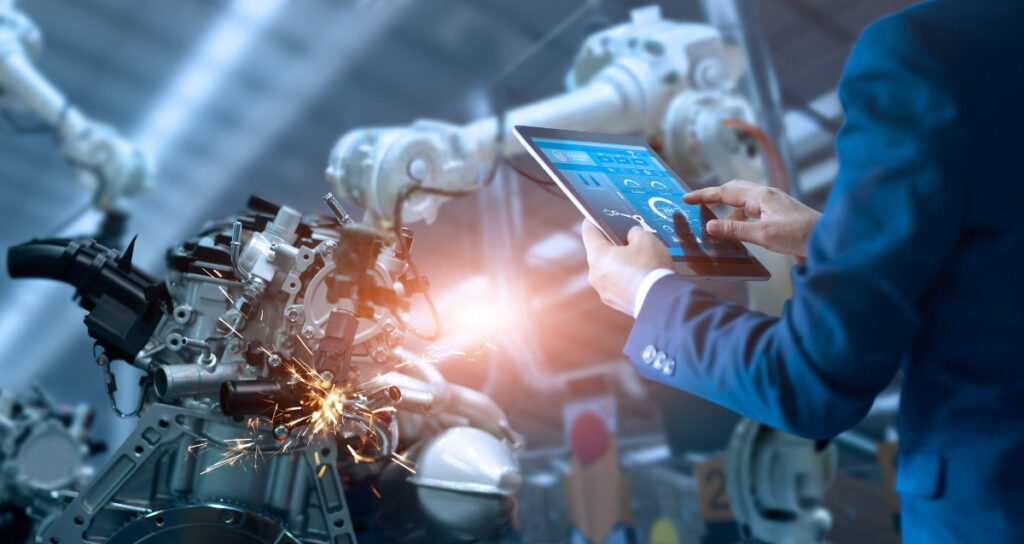Introduction: The world is on the verge of a revolution known as the Fifth Industrial Revolution. This paradigm shift, characterized by the confluence of digital technologies, artificial intelligence, and the Internet of Things, is altering industries and society at an unprecedented rate. The software development industry is at the center of this revolution, playing a critical role in fostering innovation, efficiency, and connection across multiple sectors.
Understanding the Fifth Industrial Revolution
The Fourth Industrial Revolution laid the groundwork for the current era, introducing technologies like automation, robotics, and big data. However, the Fifth Industrial Revolution takes this a step further by seamlessly integrating physical and digital realms. This wave of innovation is marked by the fusion of technologies such as artificial intelligence, blockchain, quantum computing, and advanced data analytics.
Role of the Software Development Industry
In the landscape of the Fifth Industrial Revolution, the software development industry emerges as a key player, influencing and shaping the trajectory of this transformative journey. Here are some crucial roles that software development plays in this era:
Enabling Connectivity and Interoperability:
Software development facilitates seamless connectivity between devices, systems, and platforms. Through the creation of interoperable solutions, it ensures that disparate technologies can communicate and collaborate efficiently, fostering a more connected and integrated world.
Powering Artificial Intelligence and Machine Learning:
Artificial intelligence (AI) and machine learning (ML) are cornerstones of the Fifth Industrial Revolution. Software developers are at the forefront of creating intelligent algorithms, predictive analytics, and autonomous systems that enhance decision-making processes and drive innovation across industries.
Blockchain for Decentralization and Security:
As concerns about data security and privacy grow, blockchain technology emerges as a powerful solution. Software developers are instrumental in implementing decentralized and secure systems, using blockchain to enhance transparency, traceability, and trust in various processes.
Embracing Edge Computing:
In the era of the Fifth Industrial Revolution, the demand for real-time processing and low-latency applications is escalating. Software developers are adapting by embracing edge computing, distributing computational tasks closer to the data source, leading to faster response times and improved efficiency.
Innovating with Quantum Computing:
Quantum computing holds the promise of solving complex problems beyond the reach of classical computers. Software developers are exploring new algorithms and frameworks to harness the potential of quantum computing, opening up possibilities for breakthroughs in fields such as optimization, cryptography, and material science.
Elevating User Experience with Augmented and Virtual Reality:
The integration of augmented reality (AR) and virtual reality (VR) is redefining user experiences. Software developers are creating immersive applications for industries like healthcare, education, and manufacturing, enhancing training, design processes, and overall engagement.
Conclusion
As we stand on the cusp of the Fifth Industrial Revolution, the role of the software development industry is more critical than ever. It acts as the architect of innovation, building the digital infrastructure that underpins the transformative changes sweeping across various sectors. Embracing this era requires a collaborative effort, with software developers at the forefront, driving progress, and shaping a future where the possibilities are limited only by our imagination.
What is the Fifth Industrial Revolution, and how does it differ from previous industrial revolutions?
Answer: The Fifth Industrial Revolution represents a fusion of digital technologies, artificial intelligence, and the Internet of Things. It goes beyond the Fourth Industrial Revolution by seamlessly integrating physical and digital realms, creating a transformative impact on industries and societies.
2. How does the software development industry contribute to the connectivity of devices and systems in the Fifth Industrial Revolution?
Answer: The software development industry plays a crucial role in enabling seamless connectivity by creating interoperable solutions. Through innovative software, it ensures that diverse technologies can communicate and collaborate effectively, fostering a more connected and integrated global ecosystem.
3. In what ways does the software development industry support the implementation of artificial intelligence and machine learning in the Fifth Industrial Revolution?
Answer: Software developers are at the forefront of developing intelligent algorithms and systems that power artificial intelligence and machine learning. Their contributions range from creating predictive analytics to autonomous decision-making processes, driving innovation across industries.
4. How is blockchain technology utilized by the software development industry in the Fifth Industrial Revolution, and what benefits does it offer?
Answer: Blockchain technology is employed by the software development industry to enhance decentralization and security. Developers leverage blockchain to create systems that improve transparency, traceability, and trust, addressing concerns related to data security and privacy in the evolving digital landscape.
5. What role does quantum computing play in the software development industry within the context of the Fifth Industrial Revolution?
Answer: Quantum computing holds immense potential for solving complex problems beyond the capabilities of classical computers. The software development industry is actively exploring new algorithms and frameworks to harness the power of quantum computing, paving the way for breakthroughs in optimization, cryptography, and material science.


